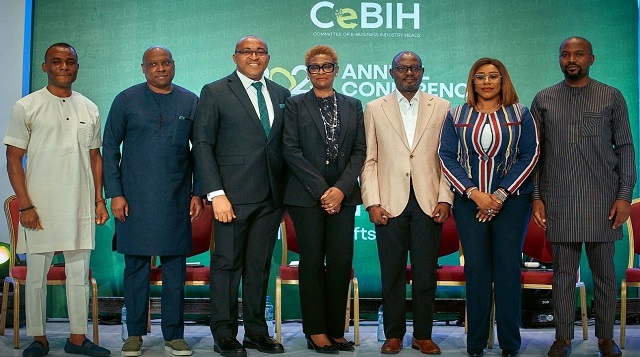General News
Subdued Hit from COVID-19, Subdued Rebound Too

By Gregory Kronsten
The impact of COVID-19 on output in Nigeria is likely to be less severe than on many comparable economies. The IMF’s World Economic Outlook in April saw GDP contraction of -3.4 per cent this year and a rebound of just 2.4 per cent in 2021.

We might think that in the early days of COVID-19 (outside China) the Fund then lacked the materials to make credible projections. Yet earlier this month the World Bank’s Global Economic Prospects came up with a similar narrative (-3.2 per cent in 2020 and 1.7 per cent next year). For the record, FBNQuest Research’s projections are -3.1 per cent and 2.2 per cent respectively.
Official sources in Nigeria have a melancholier take. Earlier this week Sarah Alade, Economic Advisor to the President and Former Central Bank of Nigeria (CBN) Deputy Governor, was quoted as sharing a best-case scenario of -4.4 per cent this year and a worst of more than -8.0 per cent contraction.
The governor has suggested, in contrast, that the damage could be less than indicated by the Fund. The point of interest is less the precise number than the underlying story.
We see several domestic and external reasons for Nigeria’s hit to be less strong than that of other emerging markets (EMs). The World Bank projects contraction of -7.1 per cent in South Africa this year, for example, while its central bank (SARB) forecasts -7.0 per cent.
Agriculture is the largest sector of the Nigerian economy and has a large subsistence component that is insulated from COVID-19. The Nigerian economy as a whole enjoys some protection from global headwinds with the obvious exception of the crude oil price.
Manufacturing produces consumer goods for the domestic market, and the reach of global supply chains into Nigeria is limited. Unlike large EMs such as Brazil and Argentina, it is not an important trading nation. Nor is Nigeria a regional hub for air transport. Unlike South Africa and Kenya, it is not a tourist destination other than for its large diaspora in the holiday season.
These factors should limit the contraction of the economy. That said, all the forecasts mentioned for the year would still result in one of the worst GDP outturns ever for Nigeria. We should remember that the per head figure would be far worse, given the annual growth in the population of 2.8 per cent.
A Lagos-based survey by REACH Technologies has indicated an average decline in incomes of about 30 per cent between March and end of May. Carried out on behalf of FBNQuest, the survey also found that respondents cut their spending on high-value items by about 22 per cent over the same period.
As the hit this year will be weaker than that on its peers, so will the rebound in 2021 be for the same reasons. Ideally Nigeria’s growth trajectory would be closer to its peers because it would then be more incorporated within the global village. The federal government does have the opportunity to make changes to increase that degree of incorporation. We note that the federal finance ministry has been quoted as saying that it has permanently exited gasoline subsidies.
We saw an earlier statement to the same effect from the top brass in the Nigerian National Petroleum Corporation, which has been absorbing the cost below the operational in its accounts. Taking the two together, we are hopeful.
Gregory Kronsten is Head Macroeconomic and Fixed Income Research, FBNQuest
General News
Top Nigerian Startups Secure Funding Boost @ iHatch Demo Day Awards

Nigeria’s startup ecosystem received a fresh injection of momentum as top emerging ventures secured funding and investor attention at the iHatch National Demo Day, where Interface Africa clinched the highest prize of $15,000.

The 4th cohort of the NITDA–JICA-backed accelerator brought together founders, policymakers, and venture stakeholders in Abuja, showcasing innovations ranging from clean-energy financing and digital food marketplaces to next-gen fintech tools.
The startups went rounds of running through state-level selections and regional competition. iHatch was established in 2021 as a strategic partnership to create an enabling environment for young Nigerians to develop and scale their innovative solutions.
The iHatch National Demo Day (4th Cohort), is an initiative by NITDA and JICA which provides a clear pathway for homegrown talent to contribute significantly to economic diversification and digital transformation.
After rigorous selection processes, the top founders converged to pitch their innovations, recognised the standout performers, which are:
Interface Africa with $15,000, the firm is driving Nigeria’s clean energy transition by enabling structured and affordable solar financing.
Ahioma with $12,000, the firm enhances food accessibility with a digital marketplace connecting consumers directly to trusted vendors.
Linia Finance with $10,000, the firm is helping Nigerians take control of their finances with tools for budgeting, tracking, and smart money planning.
Chapta got a laptop reward. They delivering an offline-capable school application ensuring consistent, accessible learning for students everywhere.
Softdrop also got a laptop reward, they solve logistics challenges through a modern delivery platform designed for speed, convenience, and efficiency.
General News
Fidelity Bank to Host Virtual Masterclass on New Tax Law

Fidelity Bank Plc, a leading financial institution, will host a free virtual training on the Nigeria Tax Act 2025 (NTA) as part of its commitment to helping small businesses prepare for the upcoming legislation.

Fidelity Bank
The masterclass is scheduled for 10:00 AM (Nigerian time) on Friday, 12 December 2025. It will provide participants with clear insights into changes in the tax framework, the impact on income and business operations, and practical steps to avoid penalties in 2026.
Attendees will also learn strategies to stay ahead in an evolving regulatory environment.
The Nigerian government enacted major tax reforms on 26 June 2025 when President Bola Ahmed Tinubu signed four tax bills into law.
These Acts will take effect on 1 January 2026 and represent a significant overhaul of the country’s tax system.
The reforms aim to modernize and harmonize Nigeria’s tax framework, improve revenue generation, broaden the tax base, and create clearer rules for individuals, businesses, and government agencies.
“Our decision to host this masterclass reflects our commitment to empowering businesses with the right information ahead of the commencement of the new tax regime.
“Information is money and a well-informed business owner is already steps ahead in the race to success.
“This is why we are bringing experts to provide accurate details and demystify the tax act,” said Osita Ede, Divisional Head, Product Development, Fidelity Bank Plc.
Interested participants can register via https://bit.ly/2026TaxLawMasterclass .
General News
PalmPay MD Seeks Deeper Financial Inclusion @ CeBIH Annual Conference 2025

PalmPay, Nigeria’s leading digital banking platform, has renewed its commitment to deepening financial inclusion across the country. At the CeBIH Annual Conference 2025, themed “Reimagining Financial Inclusion through Cultural Shifts in Consumer Credit,” PalmPay’s Managing Director, Chika Nwosu, urged industry players to deepen financial inclusion by embracing community-aligned solutions and customer-centric innovations that can better serve Nigeria’s underserved and unbanked populations.

Speaking during a panel session titled “Social Inclusion, A Veritable Tool for Financial Inclusion,” Chika Nwosu joined other industry leaders to share insights on strengthening participation among women, rural dwellers, low-income earners, and other financially excluded groups.
Chika Nwosu highlighted PalmPay’s commitment to inclusive finance through its 500,000-strong agent network, which enables seamless cash-in/cash-out services for unbanked users across Nigeria. He also emphasised the importance of PalmPay’s USSD platform, 861#, which allows users with basic phones or limited internet access to perform essential financial transactions.
“Financial inclusion goes beyond access; it must be equitable and tailored to real-life needs,” Chika Nwosu said. He shared how PalmPay leverages behavioural insights to design impactful services, including affordable health insurance, reliable bill payments, merchant solutions, and automated savings features that support financial discipline among users.
The session further examined the role of grassroots agents and community touchpoints in driving last-mile adoption. Chika Nwosu noted that PalmPay’s widespread community presence continues to build trust and encourage excluded populations to embrace digital financial tools.
The session was moderated by Ronke Kuye of the CeBIH Advisory Council and featured representatives from E-Doc Online, SmartCash Payment Service Bank, SANEF, and EFINA.
PalmPay reaffirmed its commitment to driving accessible, secure, and inclusive financial services for all Nigerians. PalmPay is a leading digital banking platform driving financial inclusion and economic empowerment in underserved emerging markets. Through its secure, user-friendly, and inclusive suite of financial services, PalmPay empowers individuals and businesses with tools to manage and grow their money.
PalmPay offers a comprehensive range of products, including mobile payments, savings, and micro-insurance via its app and mobile money agent network.
Since launching in Nigeria in 2019 under a Mobile Money Operator license, the platform has grown to over 35 million app users. PalmPay has operations in Nigeria, Ghana, Tanzania, and Bangladesh.

 Telecom2 days ago
Telecom2 days agoMinister Claims Bandits Exploit Poor Network, Bounce Calls Off Multiple Towers

 E-Financial2 days ago
E-Financial2 days agoFIRS says MOU with DGFIP Won’t Compromise Nigeria Tax Data Sovereignty

 General News2 days ago
General News2 days agoTop Nigerian Startups Secure Funding Boost @ iHatch Demo Day Awards

 Telecom2 days ago
Telecom2 days agoGoogle.org Backs CyberSafe’s Resilio Africa to Shield 2m People from Cyber Threats

 Telecom2 days ago
Telecom2 days agoCBN, NCC to Launch Short Code for Swift Consumer Complaint Resolution

 Broadcasting2 days ago
Broadcasting2 days agoNCC Blocks Piracy Sites as Nollywood Faces Rising Digital Theft

 Broadcasting2 days ago
Broadcasting2 days agoFour Must-Watch African Films Debut Free on Glo TV

 Telecom2 days ago
Telecom2 days agoNASENI Launches FutureMakers to Inspire Innovation in Young Nigerians





















